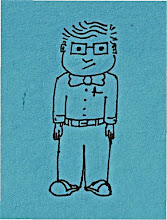We used to have two cats: Cat and Pepper. They were strays. Pepper was a tabby with speckled coloring. We found her when she ran up to our mom as we came out of church one Sunday morning. Family legend has it that she leapt into my mom’s arms. Cat was a stray that used to live under our porch. My brother Ian built him a house out of chicken wire and hay. I don’t know where he got a hold of chicken wire or hay, but we used to put a bowl of milk in the little house, so Cat slept in it. Cat was a big gray fluffy thing with a white chin and chest. His full name was Claude Cat, but when i was a kid I thought it was Clawed Cat.
We must have had them for about 9 years and they died one winter within a few weeks of each other. Pepper first, and then after a month or so of declining health, Cat died too. In our family we know that Cat died of a broken heart.
In As You Like It Rosalind disguises herself as a man and goes into the forest of Arden to escape from her uncle with her faithful cousin. Either her man’s dress or being in the woods gives her the liberty to demonstrate her sharp wisdom.
While in disguise she runs into Orlando, a wrestling ex-pat from the same city as her and the object of her affections. Orlando is in love with Rosalind and has been writing bad poetry about her and hanging it on trees all over Arden Forest. Rosalind can't reveal her true identity to Orlando for fear of jeopardizing her and her cousin's safety, so she tells Orlando that she will tutor him in how to overcome his love by pretending to be Rosalind and behaving irrationally until he falls out of love.
During one of their lessons he says he will die if he is rejected. Here is Rosalind’s response:
The poor world is almost six thousand years old, and in all this time there was not any man died in his own person, videlicet, in a love-cause... Leander, he would have lived many a fair year though Hero had turned nun, if it had not been for a hot mid summer night; for good youth, he went but forth to wash him in the Hellespont, and being taken with the cramp, was drowned, and the foolish chroniclers of that age found it was Hero of Sestos. But these are all lies: men have died from time to time and worms have eaten them, but not for love. (4:1)
I’ve been watching that BBC series Life, which means for the past few weeks, I’ve been watching animals have sex in the craziest ways. There are these Darwin Beetles with gigantic jaws. The female of the species waits at the top of a tall tree and the male has to climb up the tree and battle all the other males, knocking them off the tree on his way. When he has vanquished all his foes he gets to the top, mates with the female and then throws her over the side and off the tree too.
It’s like this in most of the animal kingdom. Battles over mates culminate in pain and agitation… but even in the cruelest natural locations, denied love usually doesn't end in death.
All the wisdom of pop music instructs me that love hurts. And all the romantic endeavors I’ve braved over the years have left contusions, some gravely injurious, gashing wounds with sloppily-healed scars atop. But some injuries are barely detectable, of surgical precision, and the great affliction is an absence. A stolen organ – whose previous operation was suspect anyhow.
Rosalind teaches Orlando the truth. No person ever did die from love. But even her organs are susceptible to affliction. When she first learns that Orlando is also roaming the woods, she curses her male disguise and asks her cousin about him. Her cousin tells her “He was furnished like a hunter.” Rosalind’s response:
O ominous! He comes to kill my heart! (3:2)
There are river dolphins in the Amazon that get in fights with one another and become covered all over their bodies with bright pink scar tissue. The more glorious pink they are, the more astonishing they are to the female of the species.
Rosalind is treated to a lesson in the nature of love herself later on by Silvius, the shepherd.
Phebe: Good shepherd, tell this youth what ‘tis to love.
Silvius: It is to be all made of sighs and tears…
…It is to be all made of faith and service…
It is to be all made of fantasy,
All made of passion and all made of wishes,
All adoration, duty and respect,
All humbleness, all patience and impatience,
All purity, all trial, all observance (5:2)
The way the play finishes up all of these characters land on their feet (they always do in Shakespearean romantic comedies). Sylvius loves Phebe and although he suffers her denials of love for most of the play, she is tricked into marrying him. Orlando and Rosalind have to suffer too, but eventually Rosalind’s male disguise is taken away and they marry in bliss.
There is some virtue in suffering for love – both for pink dolphins and for the comic heroes. They are toughened and beautified by the trials of it. The right to mate is a hard-won battle, courtship is treacherous. And only the happiest of cats find that their lives have no meaning when they're sundered from their partners. At least that's what we believe in my family.
